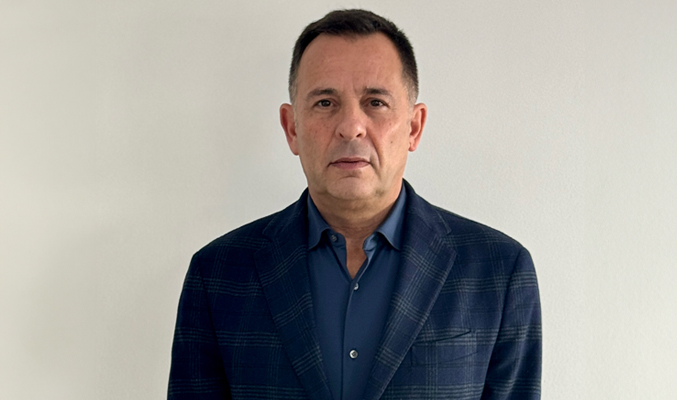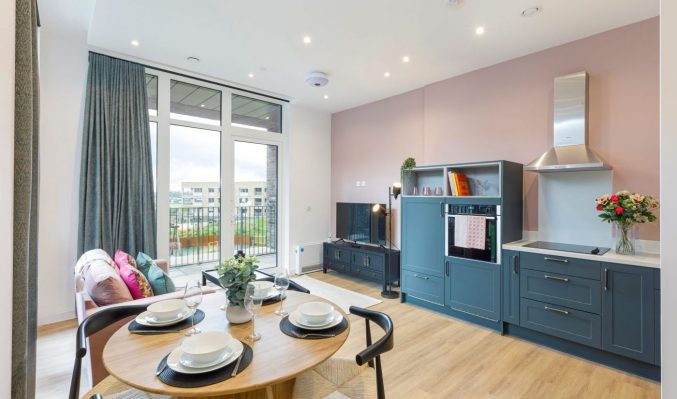General election 2024: What this could mean for the property market
By Kate Cowan

With the UK having had the worst decade of house shortages since World War Two, never has it been more important for every political party to prioritise building more affordable housing.
Owing to the shortage of homes, as we all know, house prices have rocketed, making it even harder for first time buyers to save for a deposit.
This is especially true for the younger generation, with recent figures showing that by 2026, only a quarter of people under 34 are expected to own a property compared to 2006, where half of this demographic were on the property ladder.
With the average deposit needed for a house in London being £144,500, it’s no surprise that millennials and people off all ages for that matter, are struggling to own their own home.
So, how are each party planning on tackling this issue if they are successful on Thursday and what impact will that have on the bridging finance market moving forward?
Let’s start with the Conservative and Labour parties who in some respects are not providing too dissimilar promises when it comes to tackling the housing market crisis.
Starting with the Conservatives, Rishi Sunak, has promised to build 1.6 million new homes in England in the next five years.
The “build more houses in the right places” party slogan has been adapted to focus on building property on urban, brownfield land, with the promise of fast-tracking planning for this type of housing, in turn helping to form new communities in major cities across the UK.
In terms of helping first time buyers, the Conservatives have pledged to raise the value of houses that require stamp duty (the tax on buying a home) to be paid from 300,000 to £425,000.
Turning to Labour’s manifesto, Sir Keir Starmer’s ‘get Britain building again’, is pledging to build 1.5 million new homes with social rental housing being the top priority.
Similarly to Conservative’s ambitions, many of these new homes have been suggested to be built in new towns as well as prime urban areas.
To support those who are eager to get on the property ladder, the Labour manifesto acknowledges that homeownership is now out of reach for too many young people, which is why first-time buyers would be given priority on buying homes in new developments rather than overseas investors.
If Conservatives or Labour were to be successful, it’s clear both parties are heavily prioritising creating affordable housing, which will not only be significant in helping more first-time buyers step onto the ladder, but also rejuvenating certain arears throughout the UK.
Reviewing Reform UK’s manifesto, there are also some similarities Nigel Farage is promising to enable more people achieve owning their own home.
While there being an absence of any housebuilding targets, Reform UK has most notably stated, that in the first 100 days, they will investigate and improve the planning system, fast-tracking planning and tax incentives for the development of brownfield sites.
More specifically, unused offices and vacant high street properties will be looked at while also reviewing planning system for the development of brownfield sites and implementing a ‘loose fit planning’ policy for large residential developments.
There seems to be a common theme occurring here, don’t you think?
Anyway, turning to Sir Ed Davey, it appears the Liberal Democrats are also singing from a similar hymn sheet, snubbing Sunak’s party after stating the housing market is in crisis after years of Conservative neglect.
In Davey’s manifesto, they are pledging to build 380,000 new homes per year, which would reportedly include 150,000 social homes, and ten garden cities with new powers for local authorities to build their own social and affordable housing.
Likewise, the manifesto also alludes to the encouragement of developing existing brownfield sites with financial incentives.
Furthermore, the Green Party, as expected, have spoken significantly about protecting green space for communities when it comes to their housing plans.
Co-leaders Carla Denyer and Adrian Ramsay are pledging to reduce climate emissions, tackle fuel poverty and provide genuinely affordable housing.
The Green Party’s manifesto argues that one of the main reasons households across the UK are struggling with sky-high energy prices is owing to the fact we have some of the worst-insulated properties in Europe.
As a result, by focusing on a green outcome, Denyer and Ramsay are confident it would reduce these bills with a retrofit programme that would see homes properly insulated.
While the above provides a snapshot of some of the most talked about themes expressed in each manifesto, it’s clear all parties want to prioritise tackling the housing climate.
Taking this into consideration, this is why regardless of the outcome of the election this week, we’re confident there will be a spike in borrowers looking for suitable loans to convert commercial premises into residential property.
Why will this be the case? With a significant number of commercial units throughout the UK now being unoccupied, the need for investors and developers to reimagine what our towns and cities will look like in the future is crucial.
Securing a good deal on a commercial building, which is situated in a desirable location and can be transformed into residential property, has the potential to help investors and developers achieve significant capital growth while support the housing shortage movement and demand for affordable homes at the same time.
It will also result in investors and developers being able to undertake sustainable practices with repurposing existing commercial buildings often more eco-friendly than tearing down and building from scratch. Sounds like a win-win, right?
Ultimately owing to the scale of the UK’s housing crisis, no matter the outcome this week, building the right type of homes should be top of the agenda for every party.
This is why we’re currently developing our product range to reflect this imminent change and ensure we’re ready to help a diverse range of borrowers in their individual situations when the time arrives.

Kate Cowan is the Chief Financial Officer at Hope Capital, a privately-run bridging firm which was established in 2011. In her role, Kate supports the strategic direction of the business, with a focus on the delivery of strong commercial growth.










You must be logged in to post a comment.